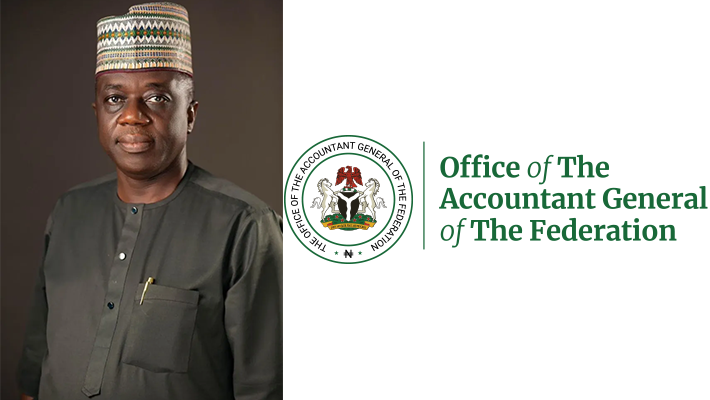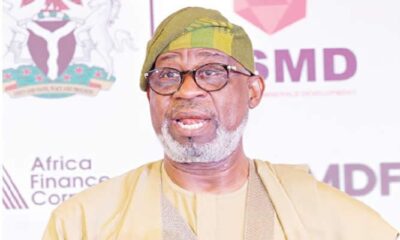The Federal Government may extend the 2025 budget into 2026, as slow capital project implementation, procurement delays, and a shutdown of the cash-planning portal have left many projects stalled about eight months into the fiscal year.
The possibility of a rollover came to light at a stakeholders’ engagement in Abuja on Wednesday, organised by the Office of the Accountant-General of the Federation to review progress and challenges in implementing the extended 2024 capital budget and the 2025 capital budget under the Bottom-Up Cash Planning Policy.
It was learnt that before any contract is signed, ministries, departments, and agencies must submit a monthly cash plan on an online platform provided by the OAGF. This cash plan, which sets out the projects to be funded and the amounts required, is reviewed and consolidated by the OAGF into a federal cash plan.
The consolidated plan is then sent to the Ministry of Finance for approval. Once approved, the ministry issues warrants—formal authorisations to spend—which are returned to the OAGF to be uploaded on the same portal. Only then can MDAs upload their payment plans, after which funds are released directly to contractors, suppliers, or beneficiaries.
However, since May, the portal has been locked for uploading cash plans for 2025 expenditures and contracts. Without cash plans, warrants cannot be issued; without warrants, payment plans cannot be uploaded; and without payment plans, no funds can be released.
A director-general under an agency in the health sector said that “we are complaining that the platform has been blocked since none of us could upload our cash plans since May.”
Presiding over the meeting, the Accountant-General of the Federation, Shamseldeen Ogunjimi, said the BUCPP was designed to ensure the government spent within its means by requiring warrants or Authorities to Incur Expenditure before commitments were made. He accused some MDAs of breaching the Public Procurement Act 2007 and other regulations, awarding contracts simply because they were budgeted for, without regard to cash availability.
He also faulted the trend of loading cash needs heavily with staff-related costs and mobilisation fees while leaving ongoing and completed projects unfunded. This, he said, had forced some contractors to borrow from banks at high interest rates and left priority government projects unattended.
“Without [a warrant], no MDA is allowed to award a new contract or process any capital payments in the GIFMIS platform,” Ogunjimi warned. He added that cash plans submitted between February and March for the extended 2024 budget had already been warranted, and that payments authorised but unused were now being finalised.
Ogunjimi assured participants that previously captured commitments would be honoured. “For those who have awarded contracts, the contract has been loaded on the GIFMIS platform, cash one has been done, it has become a liability to the government that we are ready to fund and we will fund them,” he said.
But he made it clear that when the portal reopens, “any new entrance” will be treated as a new contract and must comply with the revised process. He urged accounting officers to start payment initiation where warrants had been issued, insisting there were enough funds in the Capital Development Fund to cover them.
The Minister of Finance and Coordinating Minister of the Economy, Wale Edun, backed the Treasury’s stance. He stressed that “no letter of award is to be issued, contract signed, or any financial obligation entered into unless corresponding warrants and AIEs covering the full or committed portion have been duly released.”
Edun said the BUCPP was intended to make the payment system “more rigorous, more transparent, more accountable” by paying contractors and suppliers directly, without any middlemen.
He acknowledged that the government must meet existing obligations but said the priority was to direct new funds into productive investments that would expand the economy, create jobs, and lift millions out of poverty. “We spend what we have earned,” he said, warning that the old habit of committing funds without authority had to stop “right now, right here.”
Also speaking, the Director-General of the Budget Office of the Federation, Tanimu Yakubu said Nigeria had lost nearly 60 per cent of its gross oil revenue to deductions under the Petroleum Industry Act 2022, which allocates 30 per cent to the Nigerian National Petroleum Company Limited as management fees and another 30 per cent to the Frontier Exploration Fund.
“Once the Act came into effect without new revenue sources to replace the loss, we lost a sizable part of what used to fund 80 per cent of public expenditure,” Yakubu said. He added that oil revenues had performed even worse in the first half of 2025 due to low prices and output shortfalls.
Matters were made worse, he said, by the fact that 2025 revenues were used early in the year to fund the extended 2024 budget, forcing the government to rank all spending into Category A, B, and C projects. Yakubu said he had begun moves in the National Assembly to amend the PIA to recover part of the lost revenue.
He also disclosed that not all the loans approved under the 2024 National Borrowing Plan were raised, but the Finance Ministry would raise the balance to close the extended 2024 capital budget without further eating into 2025 funds.
On procurement, the Director-General of the Bureau of Public Procurement, Dr Adebowale Adedokun, backed the warrant-first approach. He said projects without adequate warrants or proper planning would “no longer be issued with relevant certification,” and reminded MDAs that mobilisation fees were capped at 30 per cent under the Finance Act.
He urged them to use open advertising as the default procurement method, warning that too many requests for selective tendering made funding more difficult. “Our job is to ensure that we deliver and make Nigerians have value for every kobo spent,” he said.
Auditor-General of the Federation, Shaakaa Chira, told accounting officers they would be personally accountable for ensuring compliance. “Our collective legacy will be judged not by the size of the budget we manage, but by the quality and sustainability of the result we deliver,” he said, promising audits focused on compliance, performance, and value for money.
Chairman of the Revenue Mobilisation Allocation and Fiscal Commission, Dr Mohammed Shehu, emphasised the need to mobilise more revenue. He noted that monthly allocations shared to states had risen from about N700bn in 2022–2023 to N1.7tn currently, and described ongoing reforms, especially in tax, as vital to plugging leakages and increasing funds for development.
Director of Funds at OAGF, Steve Ehikhamenor, broke down the operational changes. On 28th February 2025, he said, the total amount of capital transfers from 2024 was automatically added to the 2025 capital budget on the OAGF platform, increasing the funding requirement.
Under the revised BUCPP, MDAs must upload their legal and financial commitments as monthly cash needs, which the OAGF consolidates and sends to the Finance Ministry for warrants. Once warrants are issued, the OAGF funds the portal and pays beneficiaries directly.
He confirmed that cash plans submitted between February and March under the extended 2024 budget had been warranted and that other outstanding plans were being processed. Going forward, MDAs must submit separate annual implementation plans for the extended 2024 and the 2025 budgets, and no expenditure—including staff payables—can be incurred without a warrant.
He urged MDAs with existing warrants to begin payments immediately, saying the funds were ready and would not be diverted. The interactive session laid bare the tensions. Agriculture officials complained that waiting for warrants could make seasonal projects, such as fertiliser distribution, miss their planting windows.
Others asked what would happen to the award letters already issued while the portal remained shut. Ogunjimi replied that contracts already loaded on the portal with completed cash plans would be funded. “It is a commitment and we are going to fund it,” he said.
A permanent secretary urged issuing warrants first so MDAs could prioritise realistically, warning that contractors were increasingly refusing to accept award letters without cash backing. Another participant pointed out that delays between budget approval and release meant some constituency projects became obsolete before they were funded.
Yakubu from the Budget Office later presented compliance “guardrails” to ensure spending stayed within National Assembly approvals, that warrants matched appropriated rollover amounts, that quarterly cash plans reflected legislative priorities, and that unspent 2024 balances were ring-fenced for their original projects.
By the end of the stakeholder engagement, there was still no specific date for reopening the portal for uploading 2025 cash plans. Senior officials in attendance admitted that a rollover into 2026 may be considered, similar to the ongoing extension of the 2024 budget to December 31, 2025.
It was earlier reported that the Senate and the House of Representatives, for the second time, extended the implementation of the capital component of the 2024 budget to December 31, 2025, sparking renewed criticism against President Bola Tinubu and the National Assembly.
A source at a federal ministry earlier disclosed that the implementation of the 2025 national budget is yet to commence. Speaking off the record due to the fear of being victimised, the senior official said all expenses and operations at the ministry were still being executed under the 2024 budget, which has led to widespread delays in payments to contractors and government workers.
A development economist based in Abuja, Dr Aliyu Ilias, had described the repeated extension of the capital budget as a worrying precedent that could distort the country’s budgetary process. In a phone interview, Ilias warned that running two capital budgets concurrently could create room for duplication and reduce transparency in project implementation.
FOLLOW US ON:
FACEBOOK
TWITTER
PINTEREST
TIKTOK
YOUTUBE
LINKEDIN
TUMBLR
INSTAGRAM








































